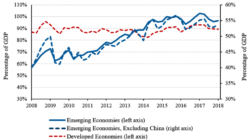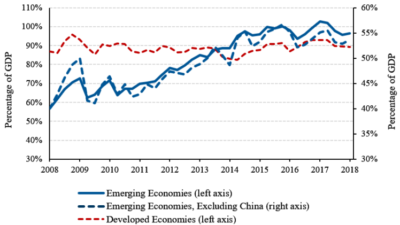Finance is a vast field, with several subtopics. It’s a topic that has been explored since ancient times, and it continues to be studied today. Although finance may seem like an outdated area of study, it still holds a rich vein of material for research.
Research on finance is a vast field with two main aspects — ‘contemporary research’ and ‘research on the history of financial markets’.
There are two main aspects to the field of finance research: contemporary research and historical research. Contemporary scholars focus on financial markets as they exist today, while historical scholars look at the past — from ancient times up until today. Both types of studies have their own advantages and disadvantages, but together they give us a complete picture of what we can learn about finance.
Research on finance has been going on for centuries now; however, it wasn’t until recently that people started looking at how different cultures handled money differently or what effects these differences had on their societies. The first big breakthrough came in 1814 when Karl Marx published Das Kapital (The Capital). This book was meant to be an analysis of capitalism as well as socialism; however it also contained many important insights into how people think about money matters such as interest rates and stocks/bonds etcetera.”
Contemporary finance topics include study of signals in stock markets, market microstructure, and positive asset pricing.
Based on the theoretical and empirical literature, there are two key areas where finance researchers have applied their work to contemporary finance topics. The first is study of signals in stock markets, which includes a variety of market microstructure issues such as information flows between potential investors and traders as well as how they interact with each other.
The second area is positive asset pricing, where economists look at how assets’ prices evolve over time (i.e., whether they move up or down) and explain why this happens—or doesn’t happen—in terms of economic fundamentals like interest rates or inflation rates.
Research in the history of financial markets has increased since the 1980s, possibly due to greater interest in ‘old economy’ stocks following the 1987 crash.
Research in the history of financial markets has increased since the 1980s, possibly due to greater interest in ‘old economy’ stocks following the 1987 crash. The term “financial history” refers to research on a person, group or institution’s use of money and credit over time. In contrast to economics and sociology, which focus on how individuals behave within specific periods of time (such as decades), financial history uses data from multiple sources—including documents such as wills, estate inventories, tax records and bank records—to trace changes over long periods of time.
The field has grown rapidly: according to one estimate from 1993 there were only about 200 holders of PhD degrees in this area worldwide; today there are over 80 000!
Although finance is an ancient topic, it still holds a rich vein of material for research.
Finance is an ancient topic, but it still holds a rich vein of material for research. Although the field is vast and complex, two main aspects can be distinguished: contemporary research (on topics such as investment banking) and historical research on financial markets.
The history of finance is one of its most fascinating aspects because it allows us to look at how our understanding of money has changed over time. We can also see how different cultures have viewed finance differently — for example, whether they focus more on profit or loss as a measure of success or whether they place more emphasis on trust between parties than risk taking when making investments.
Conclusion
Finance has always been an interesting topic for researchers. It’s not just about money and markets, it’s also about human behavior and the way people invest their time and energy into something they love.












